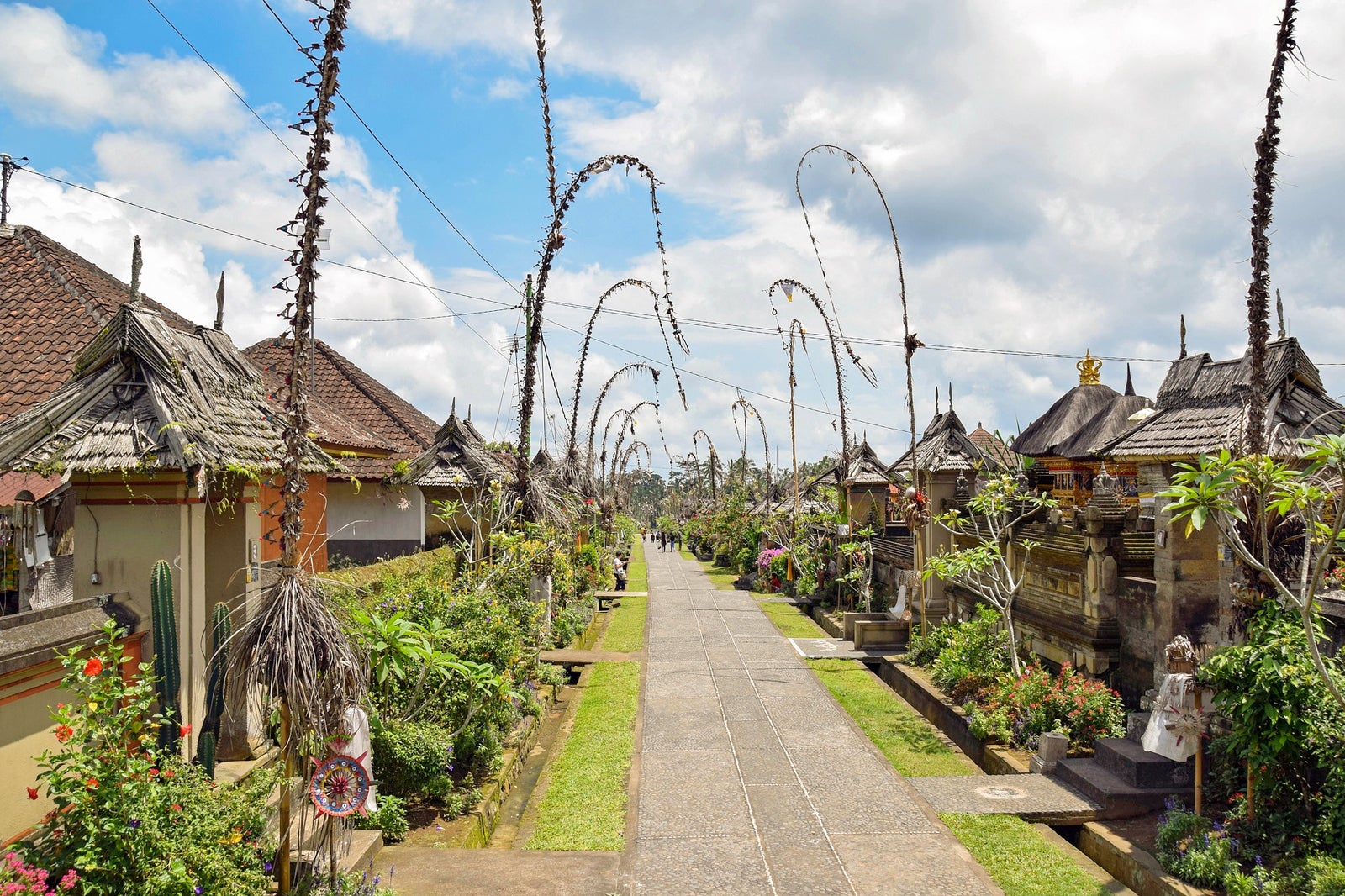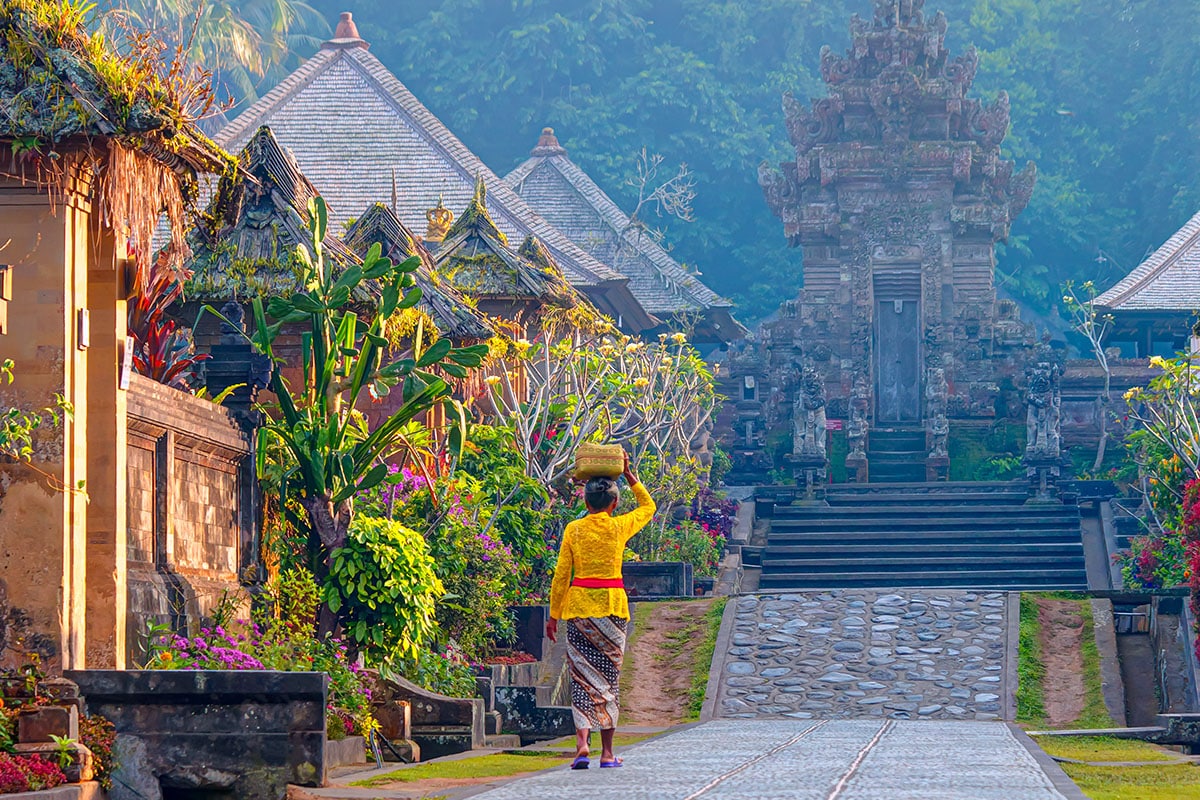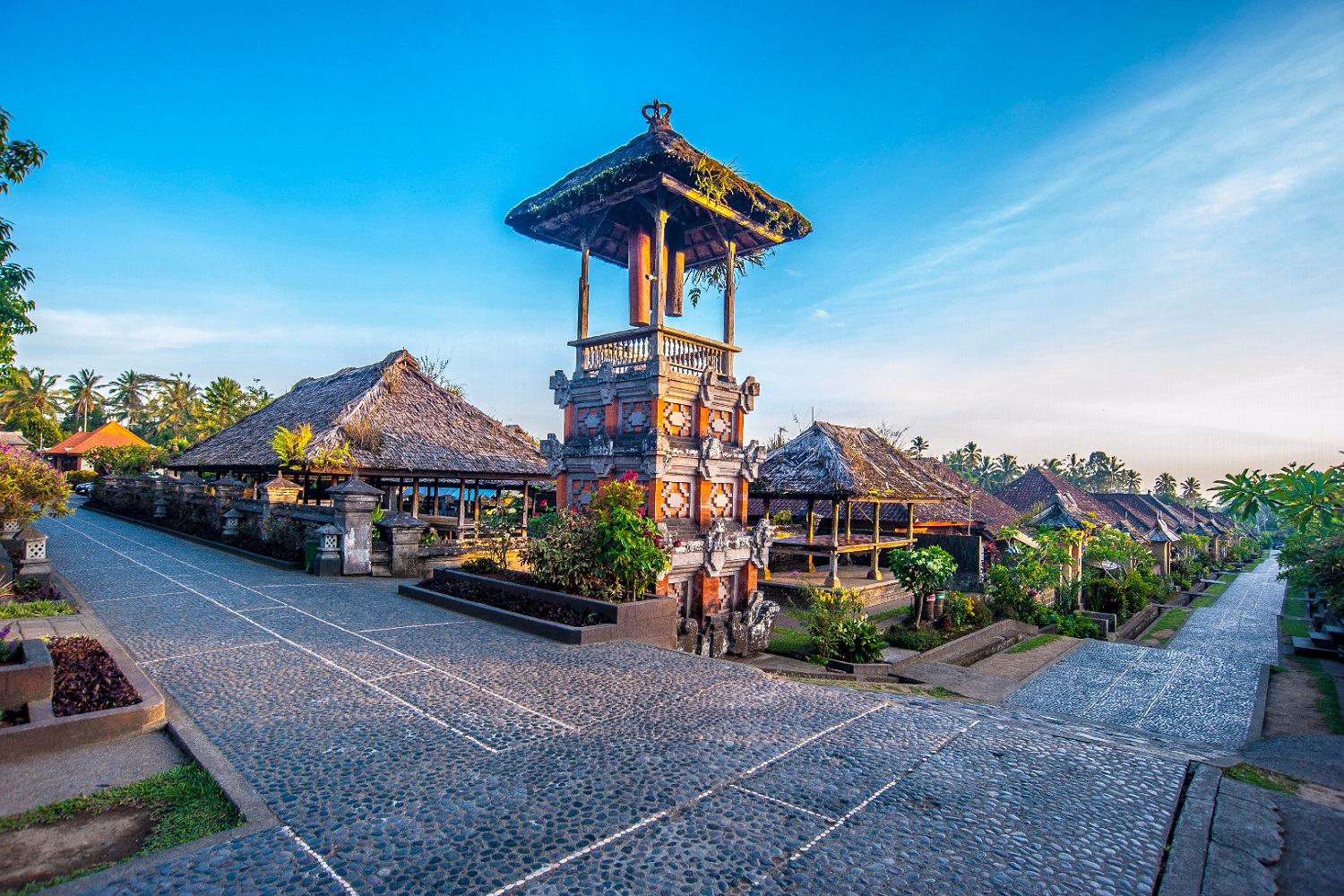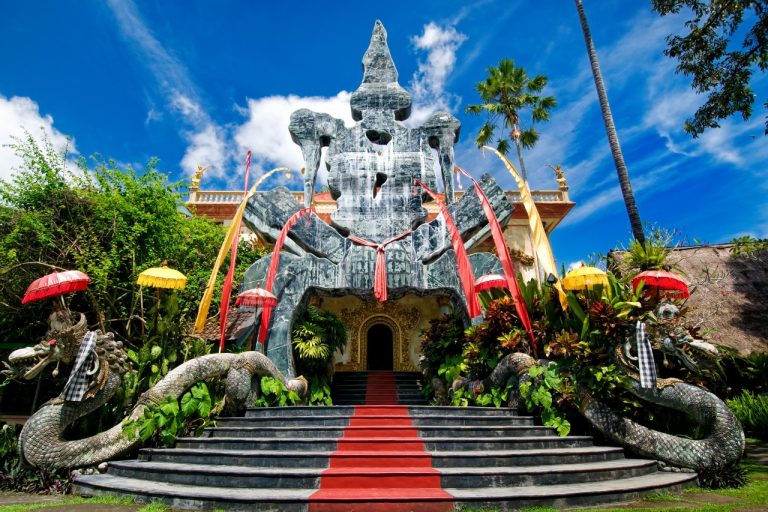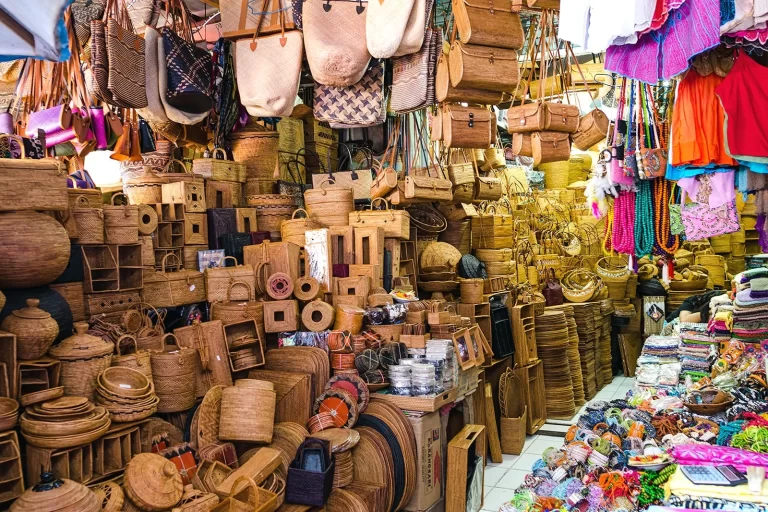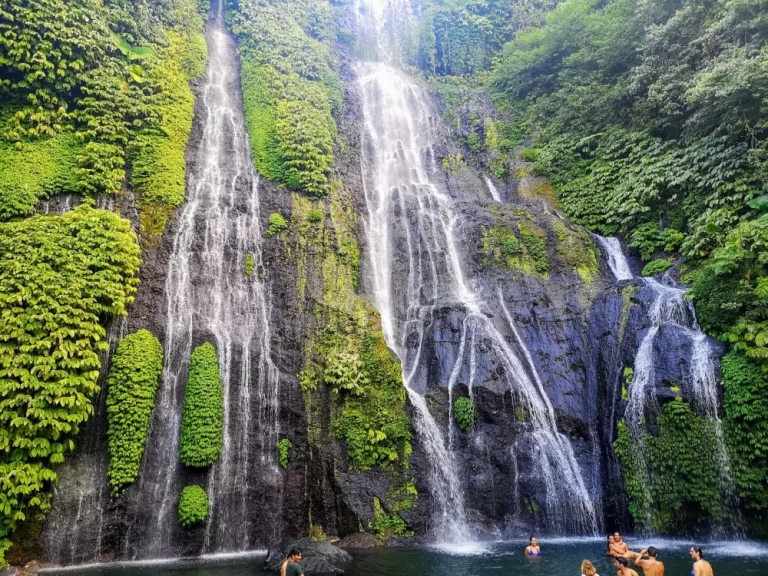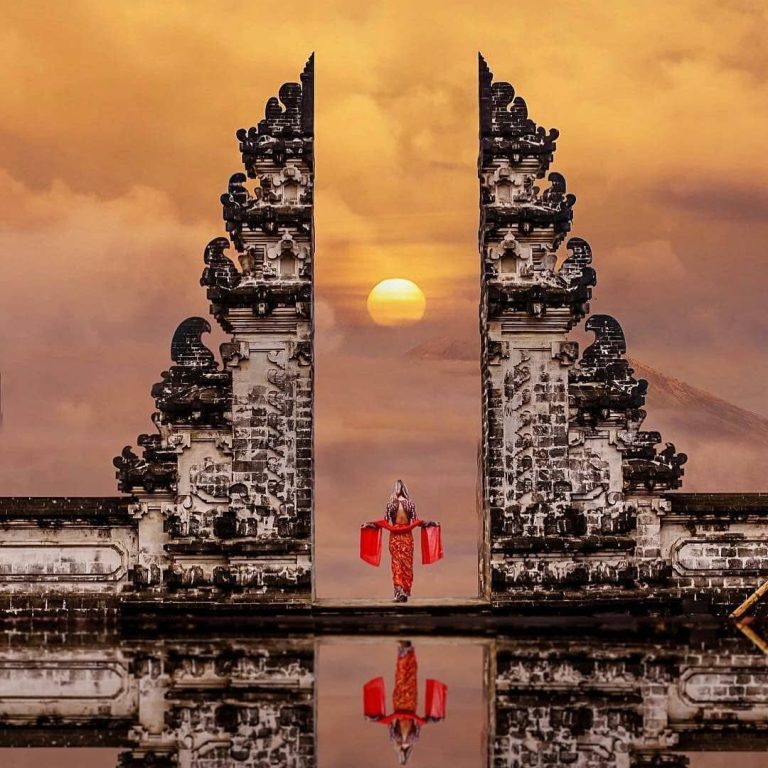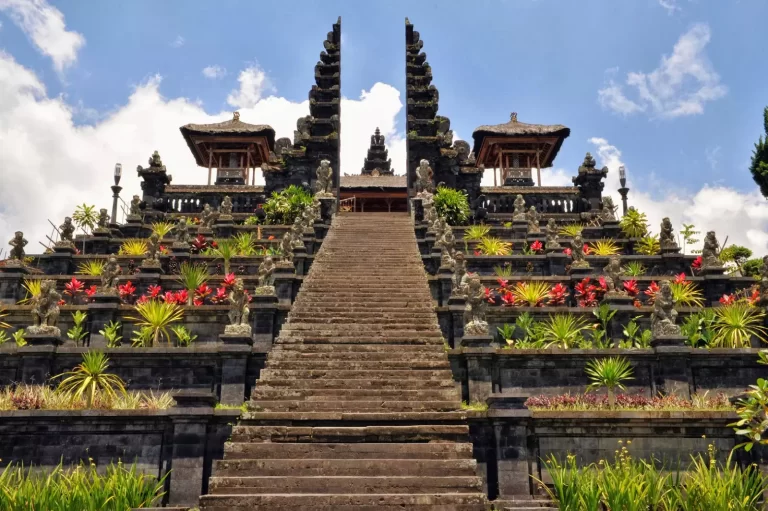Penglipuran Village is one of the traditional villages located in Bangli Regency, Bali Province, Indonesia. Penglipuran village is famous as one of the tourist destinations in Bali because of its society who still preserve their traditional culture in their daily lives. The architecture of buildings and land processing still follows the concept of Tri Hita Karana, the philosophy of Balinese society regarding the balance of relations between God, humans and their environment. Penglipuran Village succeeded in building tourism that benefited all of their communities without losing their culture and traditions. In 1995, Penglipuran Village also received a Kalpataru award from the Indonesian Government for its efforts to protect the Bamboo Forest in their local ecosystem.
Penglipuran village is one of the traditional villages from Bangli district and Bali province, Indonesia. The total area of this village reaches 112 hectares with an altitude of 500–600 meters above the sea and located about 5 kilometers from the Bangli City and 45 kilometers from the Denpasar City. The village is surrounded by other traditional villages. Kayang village in the north, Kubu village in the east, Gunaksa village in the south and Sansang river in the west. Temperatures vary from cool to cold (16-29 degrees) and averages rainfall around 2000 mm per year. Ground surface is considered flat with a height of 1–15 meters.
Penglipuran Village is believed to be inhabited during the reign of I Dewa Gede Putu Tangkeban III.[2] Almost all of the villagers believe that they are from Bayung Gede Village. In that time, the people of Bayung Gede were people who were experts in religious, custom and defense activities. Because of their abilities, they are often called to the Bangli Kingdom. But because of the distance, the Bangli kingdom finally provided a temporary area for the people of Bayung Gede to rest. This place is often referred to as a Kubu Bayung. Kubu means “camp” and “bayung” means people from Bayung Gede village. This place is then believed to be the village they live in now. They also believe that this is the reason that explains the similarity of traditional rules and building structure between Penglipuran village and Bayung Gede village.
Regarding the origin of the word Panglipuran Village, there are two different perceptions that are believed by the community. The first is Penglipuran means “pengeling pura”[3] with “Pengeling” means to remember and “temple” means ancestral place. The second perception says that penglipura comes from the word “pelipur” which means comfort and “lipur” which means unhappiness. So if combined, penglipuran means a place for consolation. This perception arises because the Bangli king is said to often visit this village to meditate.
